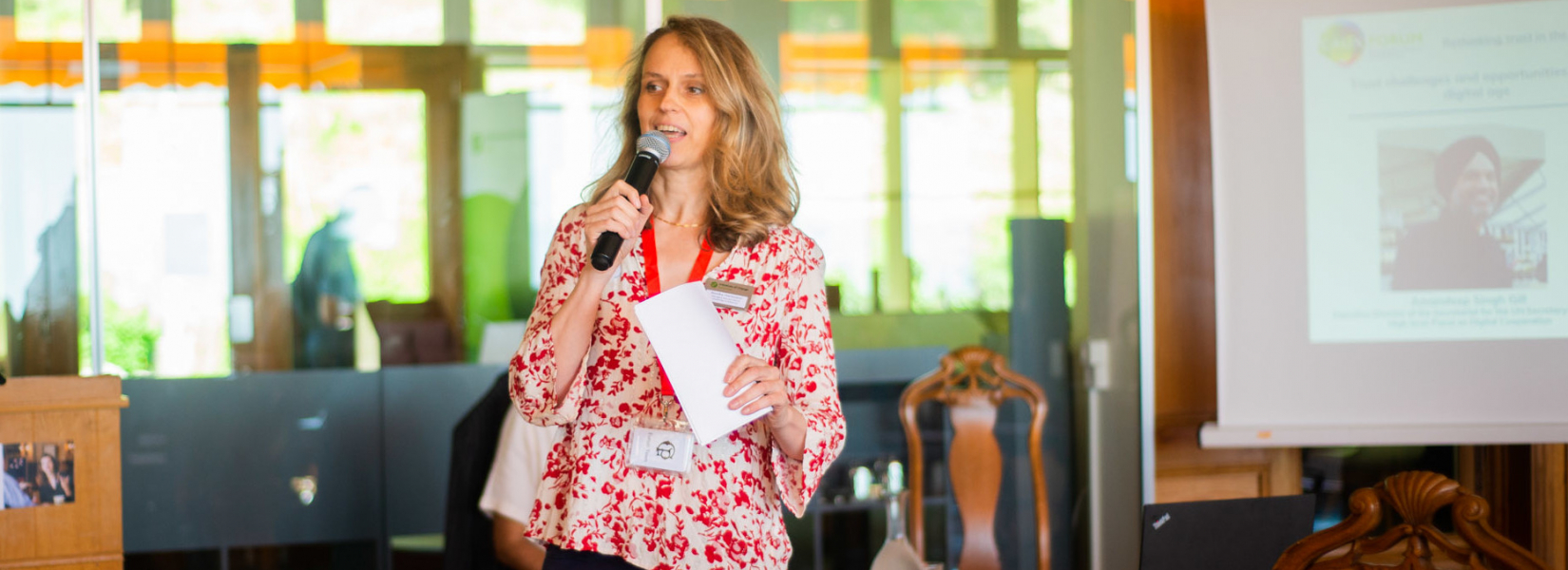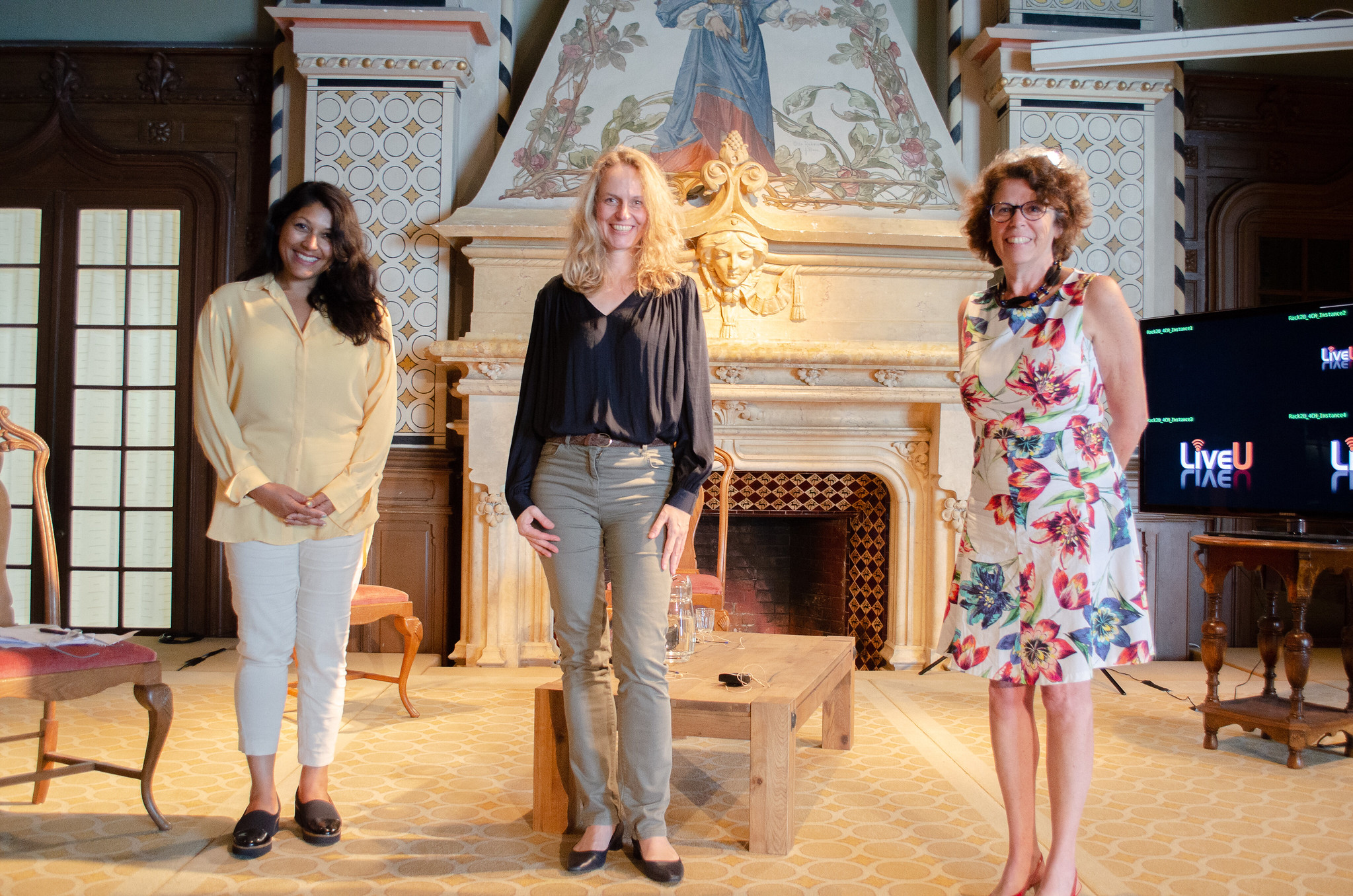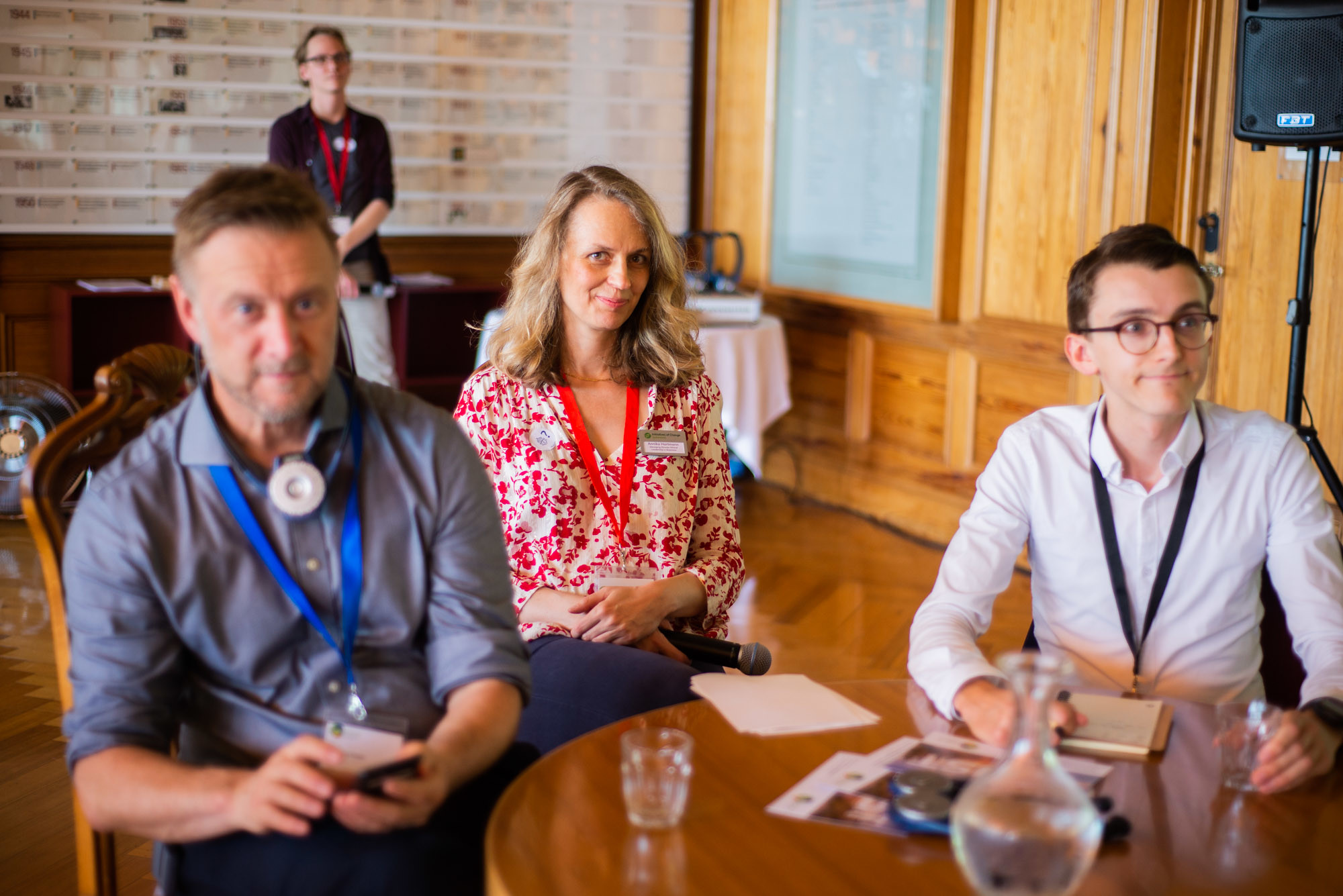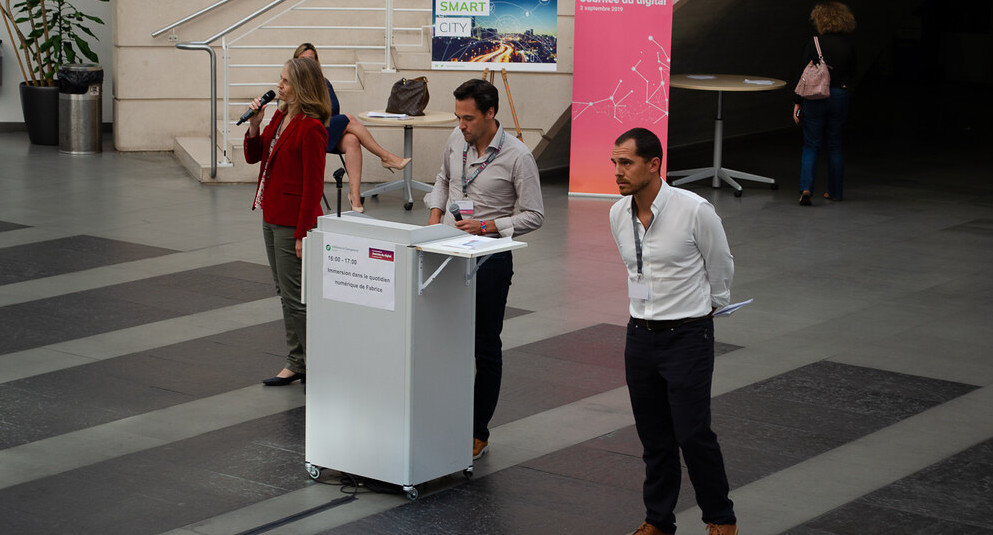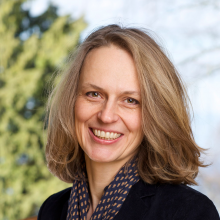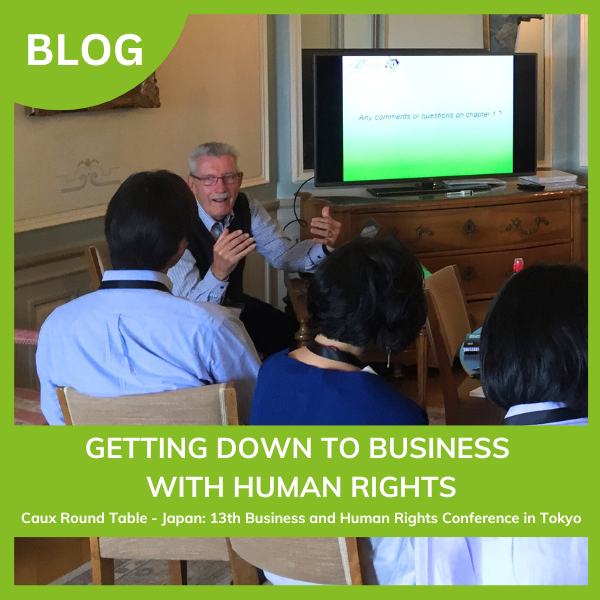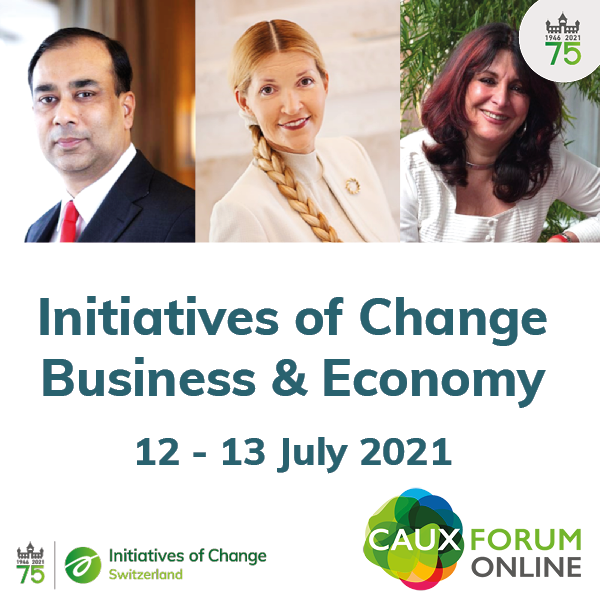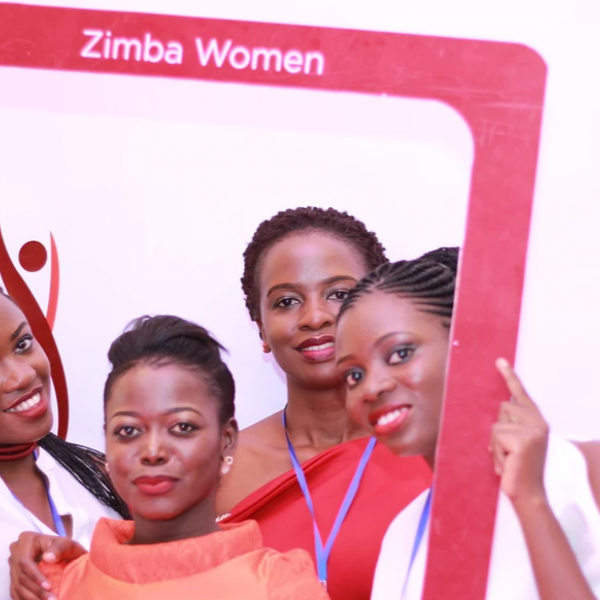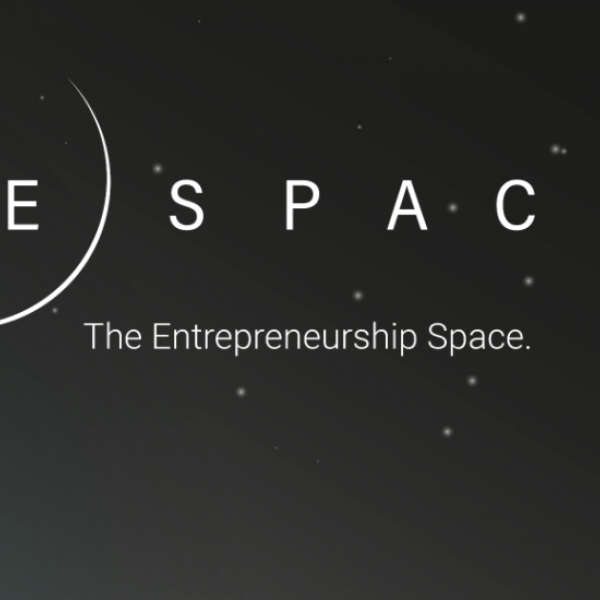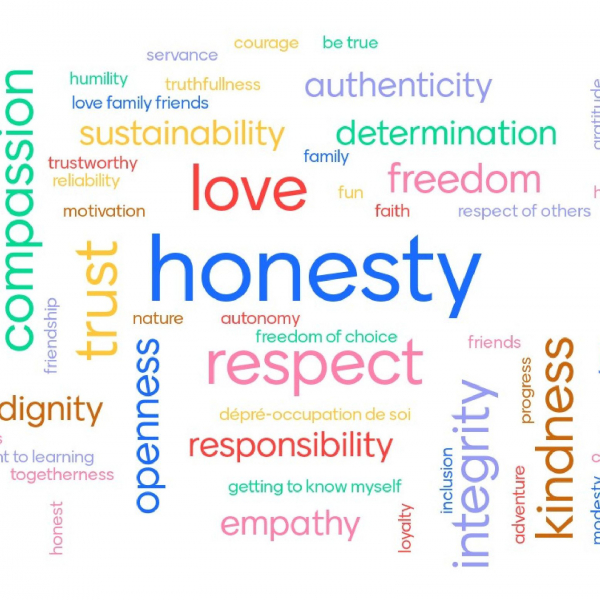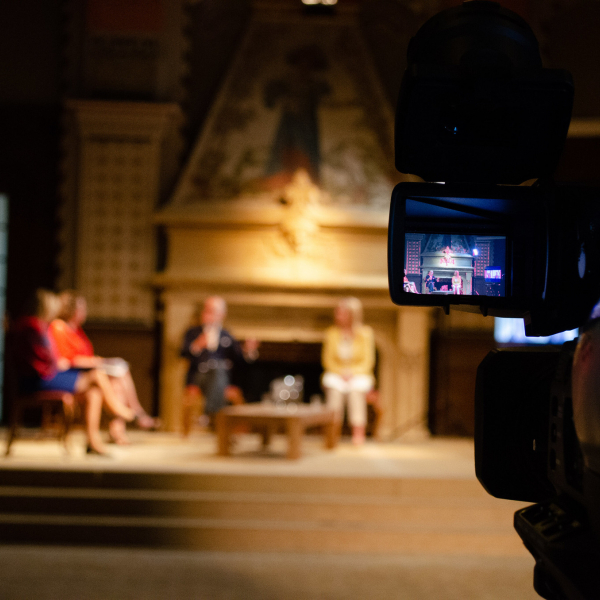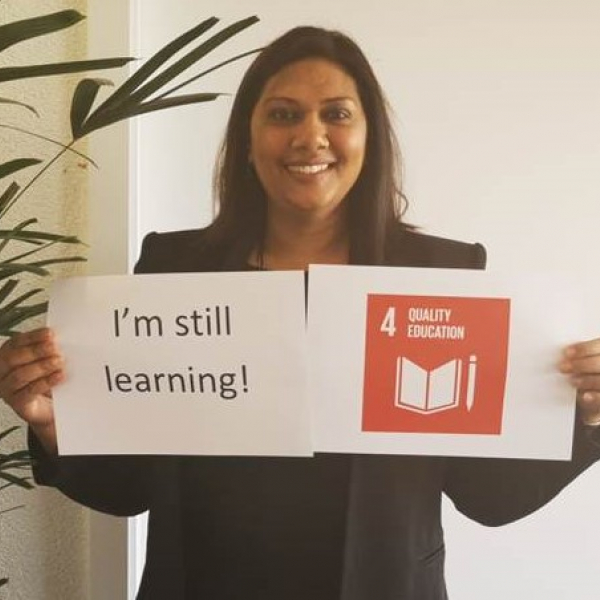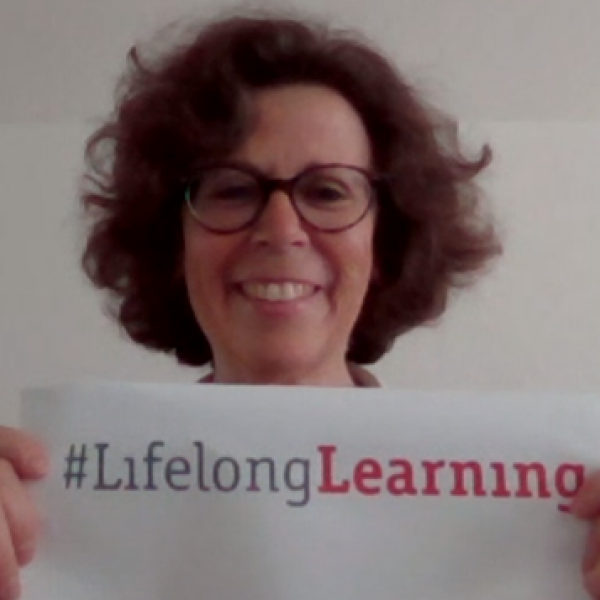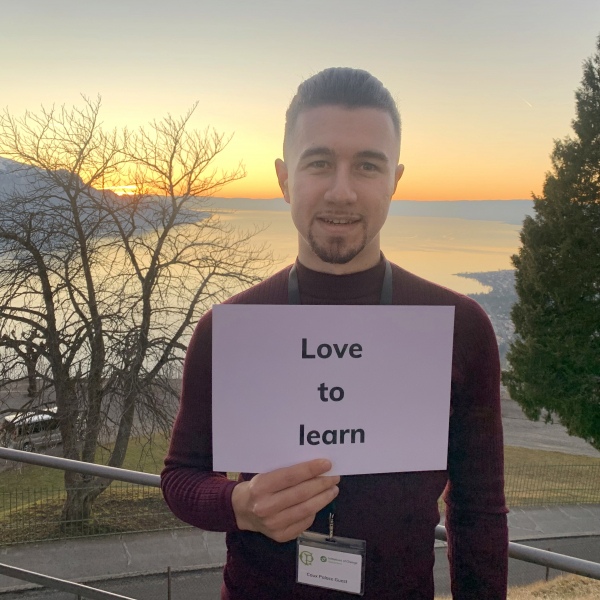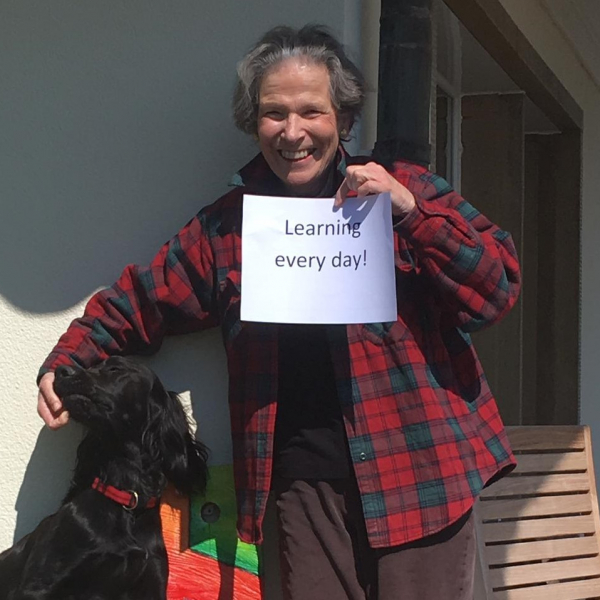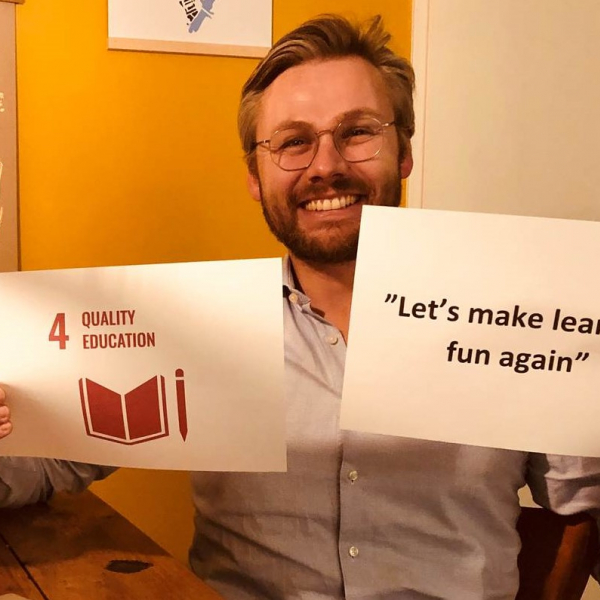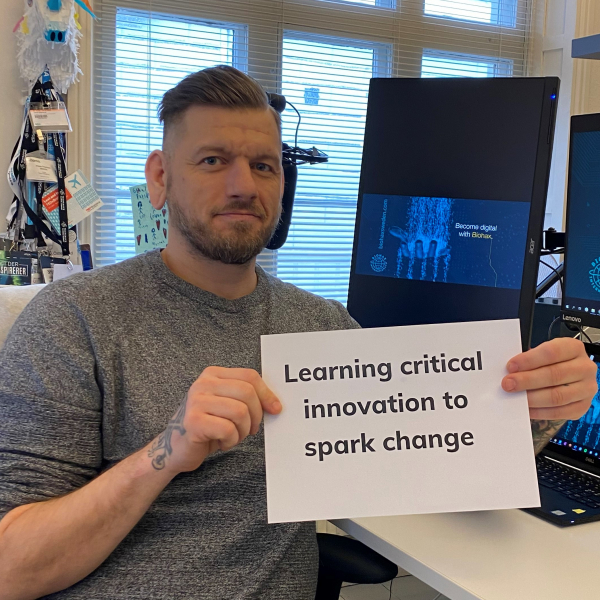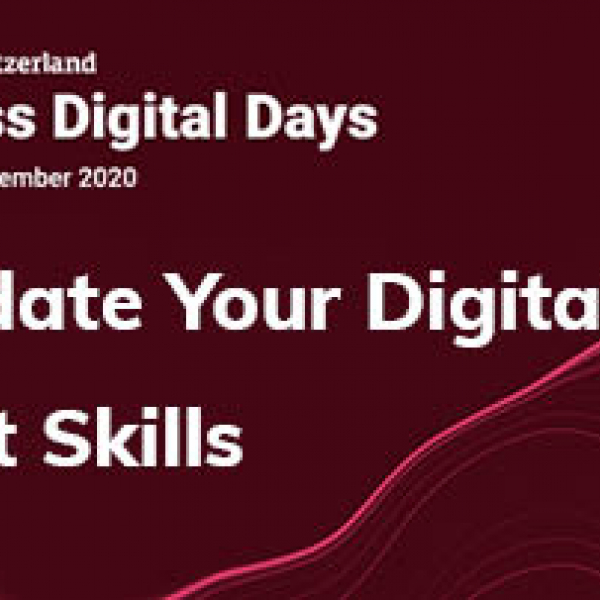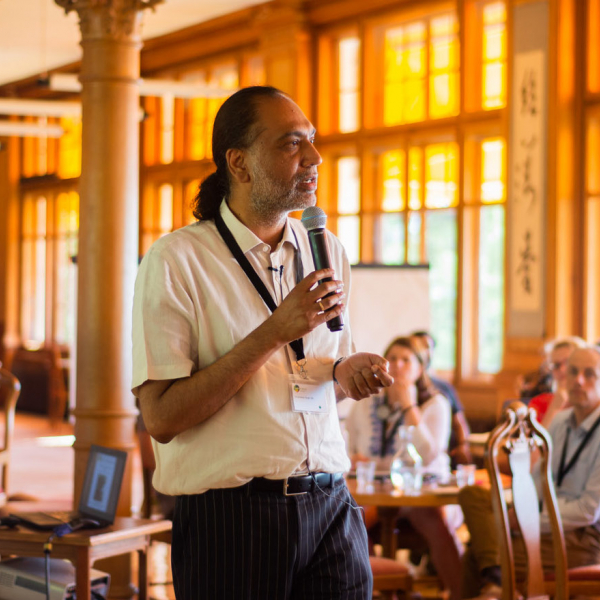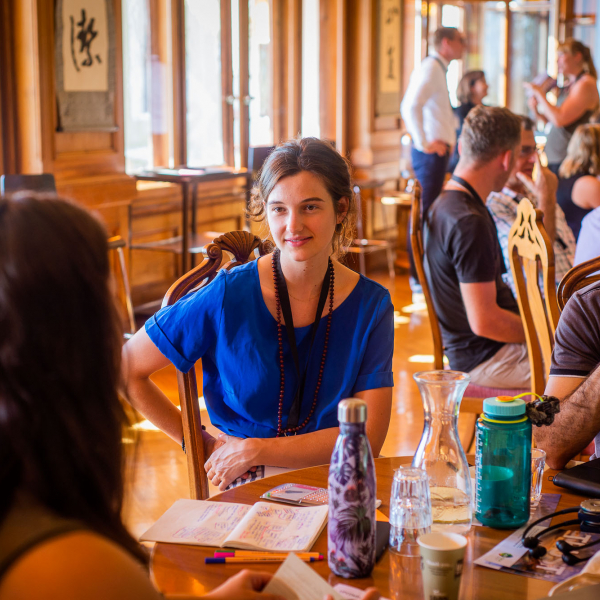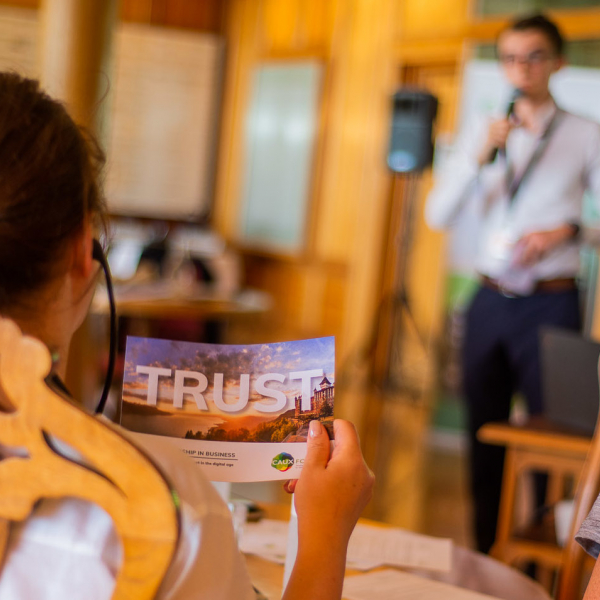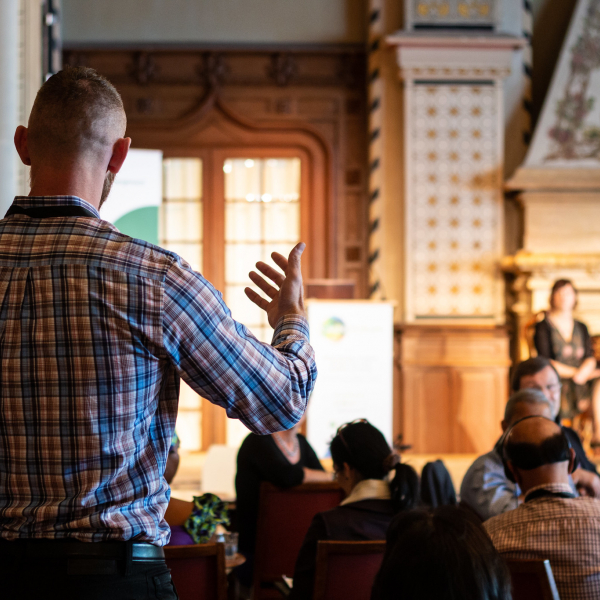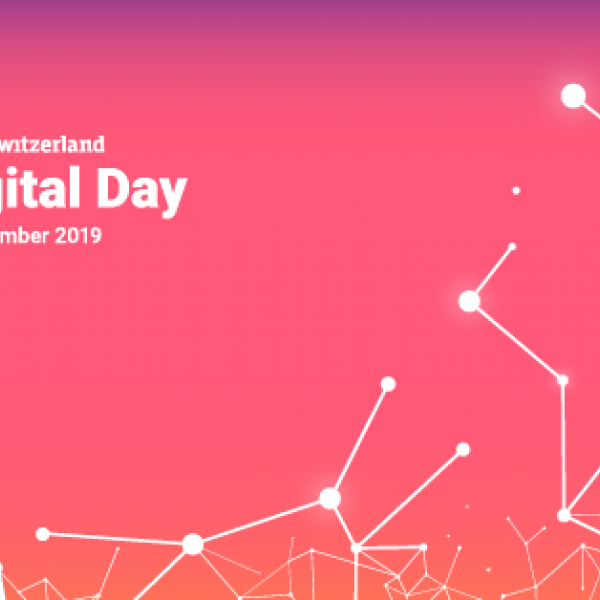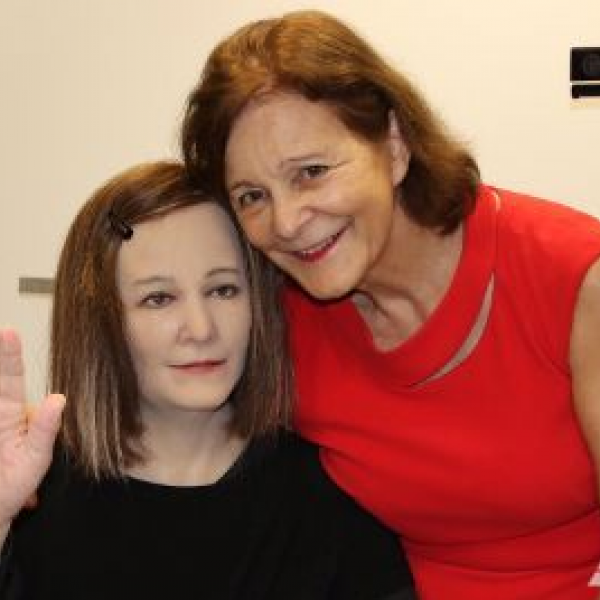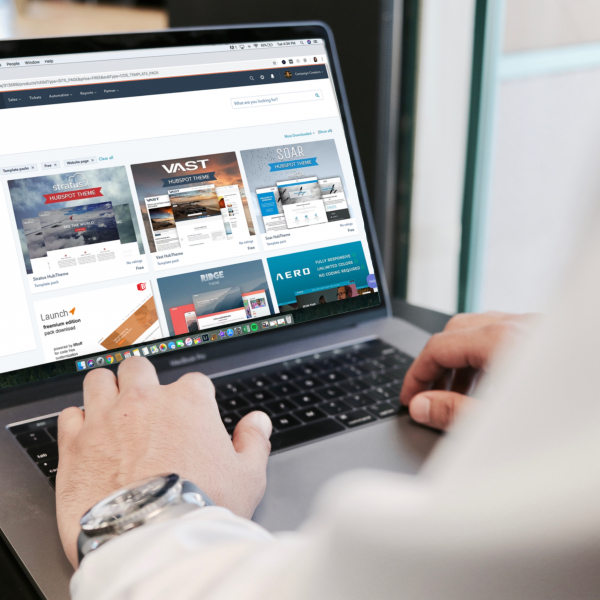Creating a network and strengthening resilience in business
A conversation with Annika Hartmann de Meuron
04/07/2021
Annika, looking back, what six words would you use to characterize your four years with ELB?
- Start-up: we started from scratch, building business connections in Switzerland
- Bold: we explored new ethical frontiers, such as digital ethics and trust
- Innovative: we tried new ways of raising awareness and triggering change
- Impactful: all steps, small and big, count in the journey of change
- Intense: humans, values, ethics, leadership are intense topics!
- Enriching: encounters with people from varied perspectives
What were ELB’s main objectives and pillars when it was created?
ELB’s main objective was to empower business leaders to lead ethically in an ever-changing world. We developed a space for exchange on experiences and good business leadership practices, with which to navigate the 21st century. We addressed such issues as digital ethics, trust and the risks of digital transformation; life-long learning as a tool for change; building resilience on a personal and organizational level; and, of course, strengthening moral leadership.
How did the global pandemic impact ELB and its approach to business ?
As a response to the pandemic, we launched the monthly ELB Talks. In these a group of business leaders from around the world shared how the COVID-19 pandemic had impacted their business and what solutions they had developed.
In summer 2020, we launched the first hybrid Caux Forum – conversations with speakers on stage in the Caux Palace and speakers online. It was a fantastic experience, as it enabled us to be very inclusive: we had a wider spread of participation, both geographically and socially.
In addition, at the end of 2020, we run an online workshop on ‘Digital softskills’ with our partner organization Digital Switzerland. We also offered a Masterclass on ‘How to survive a crisis’ in partnership with e-space, during the entrepreneurship week organized by the University of Geneva.
What role did the ELB Talks play for leaders ?
Participants told me that the ELB Talks were not only an opportunity for mutual sharing and learning, but also helped to strengthen their resilience. They made them part of a wider community which not only offered a variety of perspectives but also spread a sense of optimism.
Can you give me some examples of the topics you covered in the ELB Talks?
The ELB Talks touched on a variety of topics. We looked at how the crisis impacted small and medium-sized enterprises (SMEs) and such business sectors as aviation, sustainable investment and fashion. As the pandemic accelerated digitalization, we also touched on the topic of digital trust, ethics and the role of cybersecurity. Ethical leadership is the heart of ELB so we had conversations on the evolution of leadership in times of crisis, how to lead in a remote-working environment and how to strengthen one’s personal resilience.
What were your personal highlights of these four years?
In my role as Managing Director of ELB, I not only organized conferences and events, but also developed a local business network, partnerships and an amazing online team of volunteers. It was a privilege to meet and collaborate with people from diverse backgrounds, including the IofC Network. Every single person I met during my four years was my personal highlight!
What is your hope and vision for the business leaders of tomorrow ?
To formulate a hope and vision for future business leaders, we need to understand how the pandemic has influenced leadership so far. The COVID-19 crisis surprised every one of us and is a major lesson in humility. In recent leadership discourses, many have said that the recovery from the pandemic must lead to a more just and resilient economy and society. To achieve that, business leaders need to be guided by values beyond profit and to build trust through ethically sound leadership.
My vision for the business leaders of tomorrow is that the shift to a more values-driven leadership will be confirmed. In times of great uncertainty, nobody really knows the right path, so we need leaders who are capable of listening to their stakeholders, open to learning and who put moral behaviour first.
I believe that IofC has an important role to play in making this shift happen, by raising awareness of some simple – but not so easy – leadership habits: practising daily quiet time and journaling for self-inquiry, adopting a ‘service leadership’ mindset and being an inspiring role model.
Annika Hartmann de Meuron was in charge of Initiatives of Change Switzerland’s Ethical Leadership in Business and Trustbuilding programme from 2018 to 2021 which aimed to contribute to a better future by offering international business representatives a safe space for sharing leadership experiences, personal stories and expertise. In addition, her work also focused on the human impact of digitalization and trustbuilding in the digital age. Annika Hartmann de Meuron has an MA in International Relations and a MA in International History and Politics. She worked for many years as a Corporate Social Responsibility Manager for the Philias Foundation, prior to which she worked in the communications sector at the Global Humanitarian Forum and the PR-Agency Rochat & Partners.
